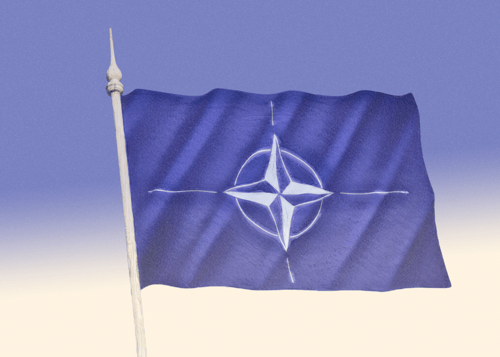
Why Europe needs to stop relying on US defence
On Tuesday, on the far side of the Atlantic, US voters cast their ballots. From climate policy to trade agreements to a trans-Atlantic endorsement (or denial) of far-right politics – a lot was riding on this one for Europe. But most immediately, this election means a lot for European defence. Last week, The National Interest, a US news outlet focused on defence issues, ran the headline ”Ukraine's Future Could Depend on America's 2024 Election”, and there's plenty of evidence to suggest that could be true.
President-elect Donald Trump has long been friendly with Russian president Vladimir Putin. Recently, he pressured his allies in Congress to hold up aid to Ukraine for six months, as Ukrainian forces ran dangerously low on ammunition and lost lives and territory. Trump also said he'd seek a peace agreement on his first day in office, which would come at the expense of Ukraine. Comments like these cause NATO allies to question if they could really count on the US to defend them under his leadership.
The US's priorities have long shifted away from Europe: while in the 1990s, more than 120,000 American soldiers were stationed in Europe, it's now far below 100,000.
Therein lies the problem we don't hear much about. This election shows just how perilous it is that Europe has come to rely on the US for military protection. Gone are the days when US presidents and their European allies agreed on the importance of defending each other. Now, Europe's security hinges on a few thousand undecided swing state voters who determine the next US president.
With that in mind, we looked at military spending in Europe to get a sense of how ready (or not) Europe is to defend itself.
European countries neglected military spending for too long
In part thanks to US and NATO protection, European countries could prioritise funding social welfare over defence for decades. In Germany, which currently maintains the biggest military budget of the EU member states, the proportion of defence funding in the total government expenditure nearly halved from 3.9% in 1991 to 2.1% in 2021. During this period, defence spending had the second weakest growth of all government functions, whereas spending on health care grew the strongest.
Germany has ramped up its defence budget since 2022, but its defence minister warned earlier this year that the country is not ready to defend itself against Russia, citing a too small budget among other issues. Similar warnings have come from military leaders elsewhere in Europe. In 2012, when the commander-in-chief of the Swedish armed forces was asked how long the country could defend itself against a military attack, he answered one week. Sweden has also begun to increase its defence expenditure since then – it's up fivefold in the past five years.
Annual military spending in the EU has been slowly but steadily growing since 2014, when Russia annexed Crimea. Still, in many countries, it remains just above or beneath the 2% GDP spending goal.
Besides a lack of funds, many armies in Europe lack personnel, and countries struggle to meet recruitment targets. Desperate to recruit additional troops, Germany's defence ministry recently announced plans to allow foreigners to join the army. The defence minister has also mentioned restoring conscription, a highly contentious move that would almost certainly cause an uproar. Outside of Ukraine, ten countries in Europe still practise conscription: Austria, Estonia, Denmark, Finland, Greece, Latvia, Lithuania, Norway, Sweden, and Switzerland.
Does Europe have a plan?
Possible European defence solutions include launching a European army, or building up nuclear deterrence with more weapons. Proposals to create a European army began as far back as the 1950s, and French president Emmanuel Macron more recently endorsed the idea. It remains unlikely to come into existence anytime soon, as it faces political and practical hurdles.
For now, France and the UK are the only European countries besides Russia that have nuclear weapons. The US also keeps several nuclear warheads stored on air bases in Belgium, Germany, Italy, the Netherlands, and Türkiye.
In a report presented to Commission president von der Leyen last week, former Finnish president Sauli Niinistö said the EU needs to build up its defence proactively. Specifically, he recommended that the bloc spend 20% of its budget, or about €1 trillion, over the next seven years on security. He also called on member states to work more closely together – to prepare an EU response plan in the act of armed aggression against a member state.
Niinistö's report also acknowledges that ”many of the proposals made in this report will no doubt be difficult to reach consensus on among member states…” It suggests launching initiatives among willing member states to move forward more quickly.
Building up enough defensive forces in Europe to offset reliance on US support will take time and resources, but maintaining focus on this now will make the difference between being ready to defend Europe's borders or being caught totally off guard.